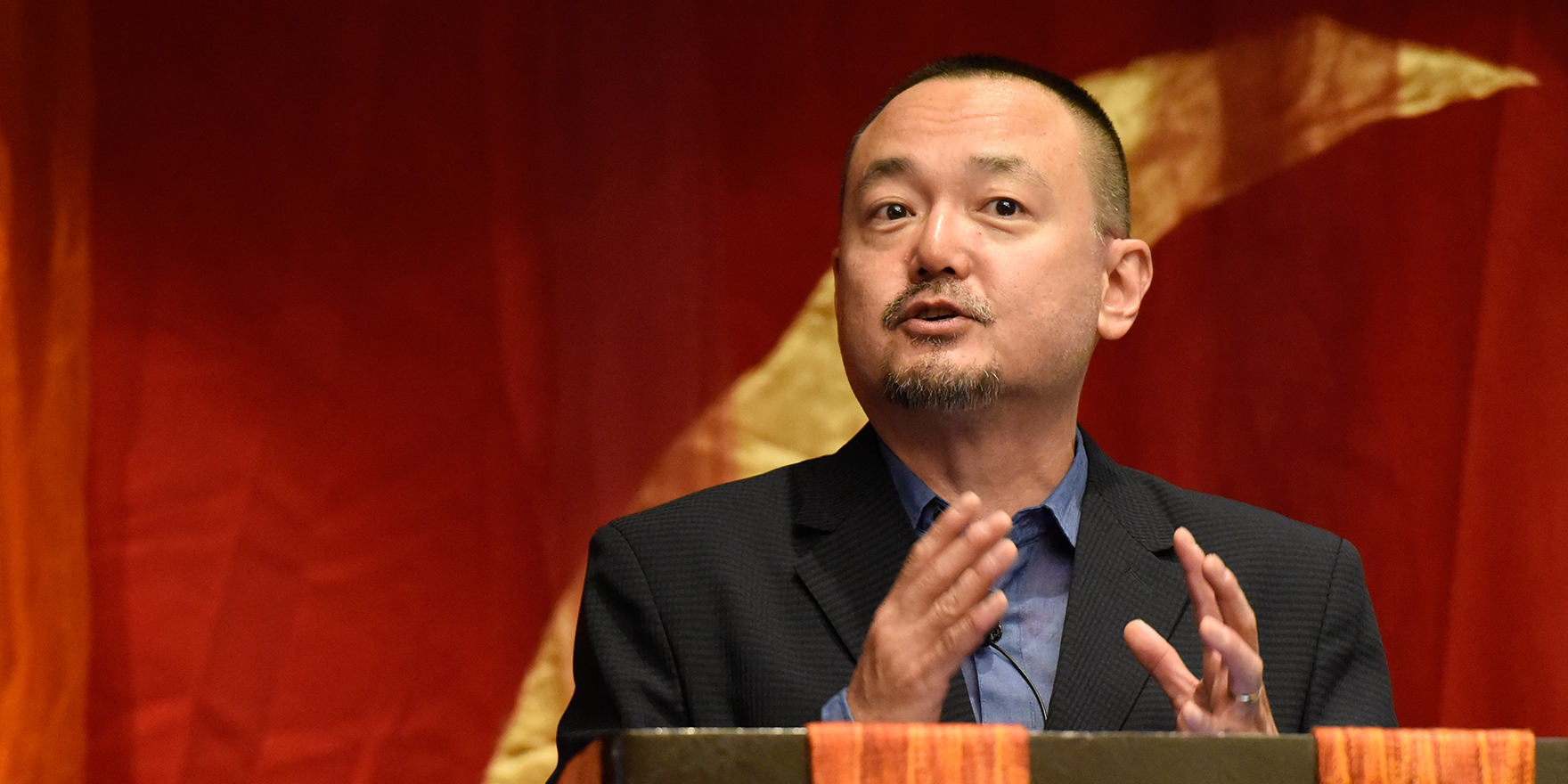
The Rev. Dr. Soong-Chan Rah, professor of church growth and evangelism at North Park Theological Seminary, speaks during Big Tent’s first plenary Thursday. Photo by Rich Copley.
By the end of Big Tent’s opening plenary session Thursday, the nearly 800 Presbyterians gathered in downtown Baltimore were crying right along with the Rev. Dr. Soong-Chan Rah, who told the faith story of his mother, a single mom who worked 20-hour days to support him and his three siblings despite kneecaps split open by a life of prayer on hardwood floors.
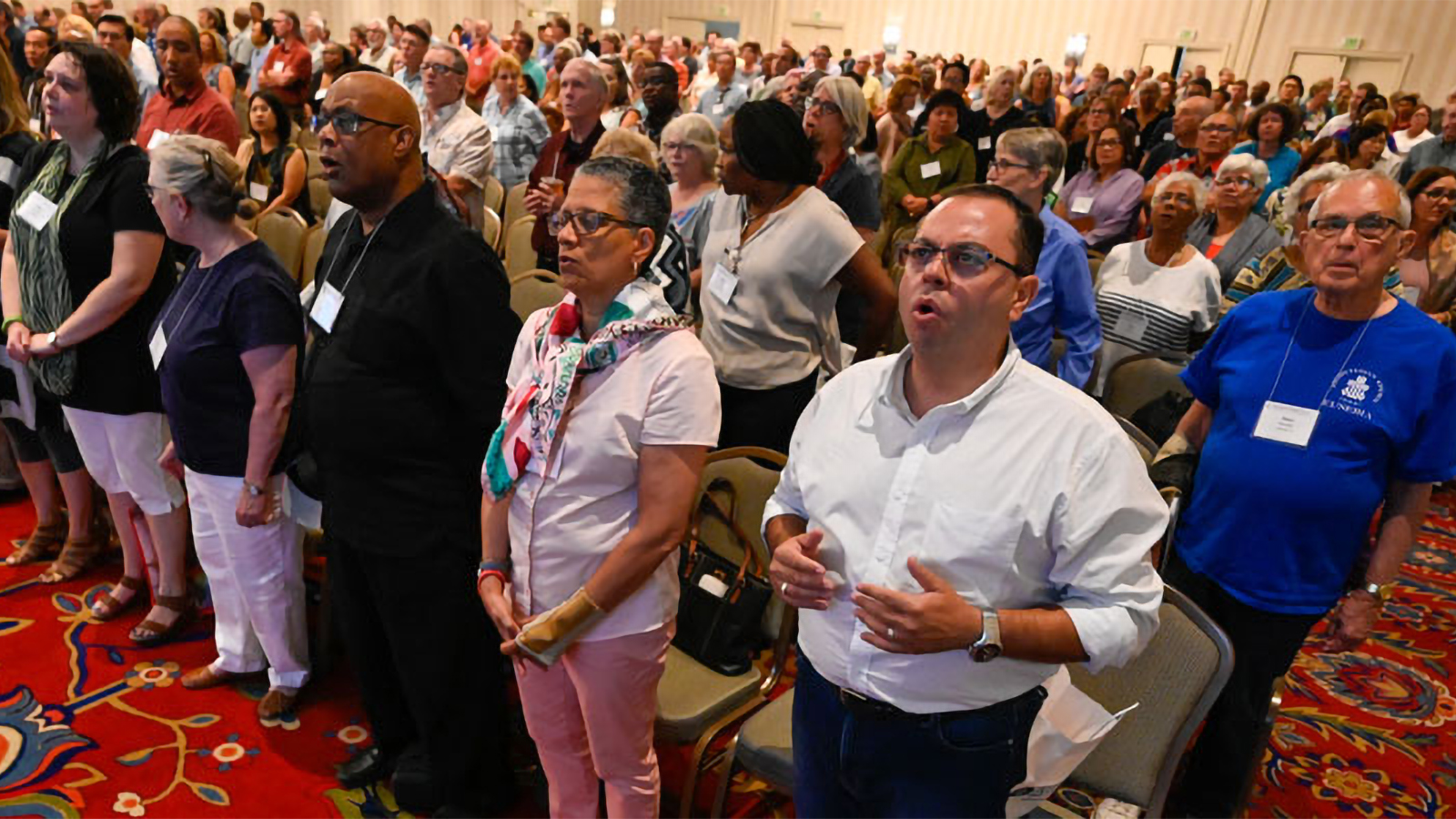
Nearly 800 Presbyterians are gathered in Baltimore through Saturday for Big Tent. Photo by Rich Copley.
Now in her 80s, his mother is one of “the grandmothers and mothers who have prayed for the church on broken knees, have laid down their lives for the sake of their children — these are the stories we must lift up,” he said. “Don’t pray for a bigger building. Pray for broken knees before God.” The crowd gave him a standing ovation as his rousing talk concluded.
The professor of church growth and evangelism at North Park Theological Seminary lamented the fact that we no longer do much in worship with the Book of Lamentations. He said he spent five years writing a book on Lamentations “that sold maybe five copies … We are obsessed with triumph, victory and greatness. We forget the story of the Bible is suffering and pain.”
In Lamentations, Babylon is “the worst place in the world. It was Las Vegas, Washington, D.C., New York City and Hollywood rolled into one.” He called Lamentations “the catastrophic moment in Israel’s history.” The question, he said, is how would the children of Israel respond: run away and hide, adapt to the ways of the victors — or lament and trust in God’s sovereignty.
He hopes U.S. Christians won’t batten down the hatches the way one church did. That church worshiped in a sanctuary shaped like an upside-down ark. He labeled that design “Ark-itecture.”
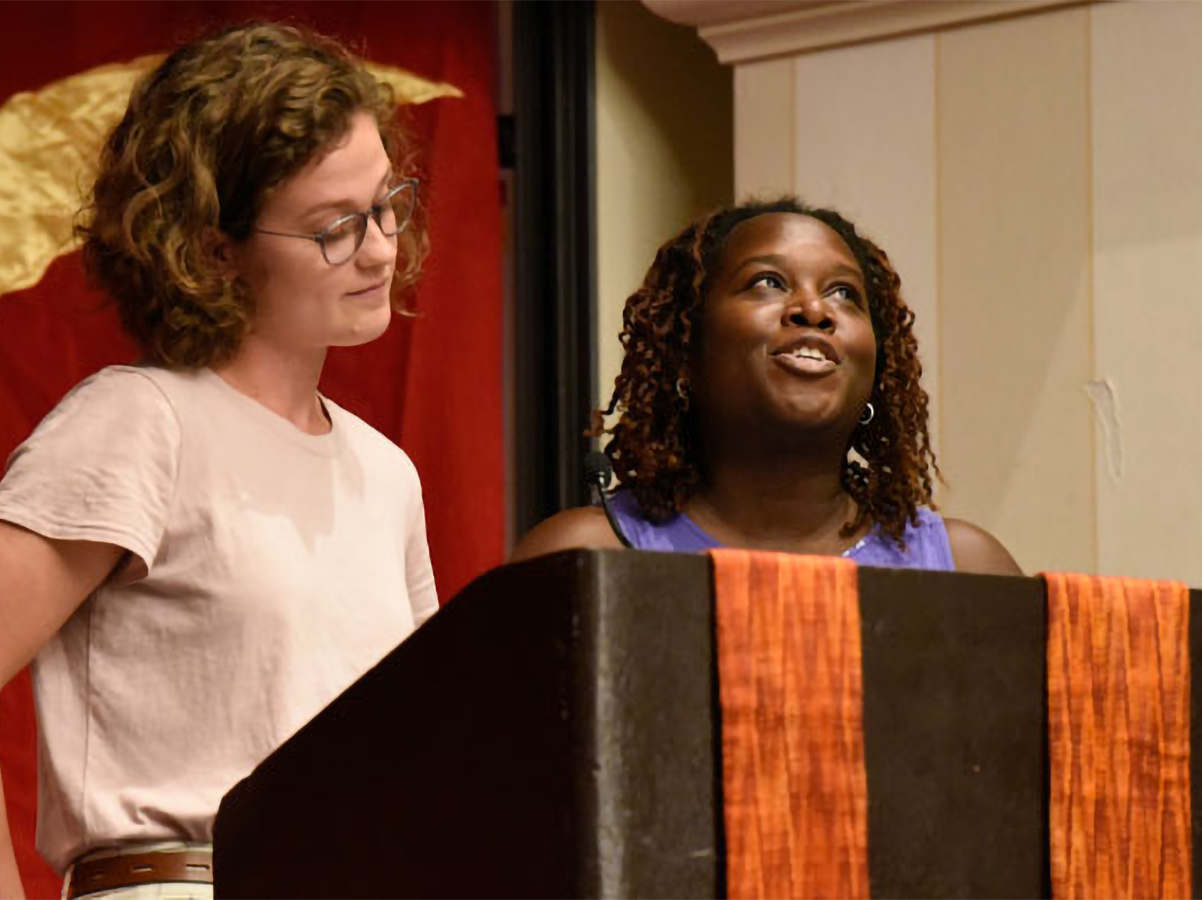
Olivia Thomas (left) and Melva Lowry, who’ve been working at The Center in Baltimore as part of the Hands and Feet Initiative, discuss their work during Thursday’s plenary. Photo by Rich Copley.
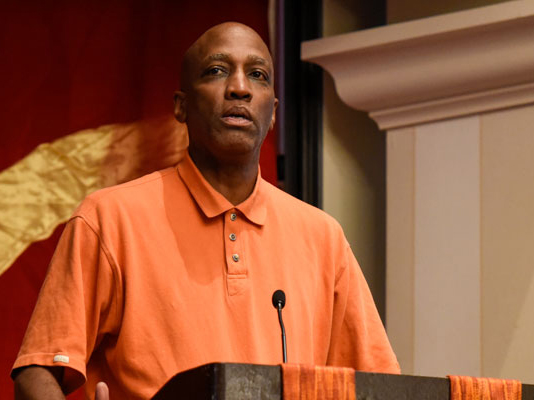
The Rev. Dr. J. Herbert Nelson, II, Stated Clerk of the Presbyterian Church (U.S.A.), welcomes nearly 800 Presbyterians to Big Tent Thursday. Photo by Rich Copley
“How do you do evangelism from an ark? Very badly,” he said. Aboard that ark safe from the floodwater, we might throw a life preserver to our Uncle Joe. But when our neighbor who’s a different nationality floats by, we’re hesitant. “He looks like a 2-4 clapper when we are a church of 1-3 clappers,” he said. Maybe there’s an ark down the street for the likes of this fellow, he said.
The reality is that by 2023, half of U.S. children will be of non-European descent. “This is a done deal, folks,” he said. “The saving of American Christianity is not white Christians.” Latino churches are booming, and African American and Asian churches are growing. “You can engage that reality or run away from it,” he said.
Lament is the entryway into that conversation, he said. “It opens space to hear all the voices in the room — not just the privileged and the powerful, but also those who suffer and are oppressed.”
Lamentations is powerful because it’s “reflective of the voice of the people.” It may be the Bible’s most feminine book — even more so than Esther or Ruth, he said.
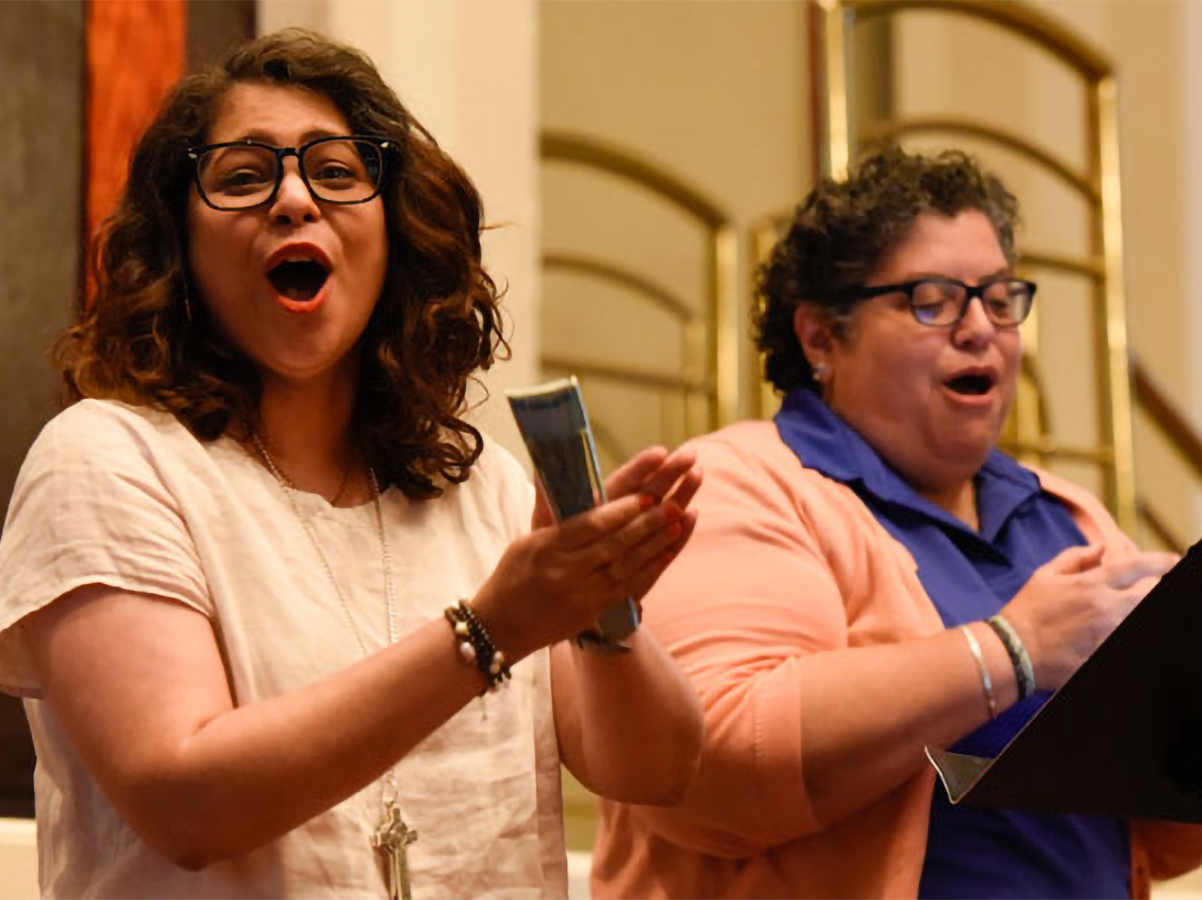
General Assembly Co-Moderator and Ruling Elder Vilmarie Cintrón-Olivieri joins Marissa Galvan-Valle to help lead the Big Tent plenary in singing Thursday. Photo by Rich Copley
If Jeremiah is indeed the author of Lamentations, he “gets out of the way so that the voices of the women can speak up,” he said. He invited his listeners to “think of ways we can step aside and let the voices of the marginalized step up.”
“We engage in spiritual famine when we refuse to lament,” he said. “A big tent is not just for people who look different or do different things. It’s being together and hearing the voices of the most oppressed and the most marginalized. Will they be the faces of Jesus to you? Will they shape the trajectory of this denomination?”
Thursday’s plenary also included a presentation by Olivia Thomas and Melva Lowry, the two women hired for a yearlong fellowship at The Center in Baltimore, part of the Hands and Feet initiative launched by the Rev. Dr. J. Herbert Nelson, II, Stated Clerk of the Presbyterian Church (U.S.A.). The initiative seeks to strengthen the church’s mission efforts through partnership and mission involvement in cities hosting the General Assembly.
Lowry said in her work she’s seen both hope deferred and dreams realized, “depending on what side of street you look.”
In reference to recent presidential tweets disparaging Baltimore, Thomas acknowledged that Baltimore does indeed have rats. Once she picked up a frozen one as she was picking up trash.
But there are no rats in a garden The Center helps tend at a methadone treatment facility for people dealing with opioid addiction. There a reason the rats stay away from that garden, a man told her: “It’s because you are always tending the land,” he said. “Rats don’t like to go where people are tending the land.”
